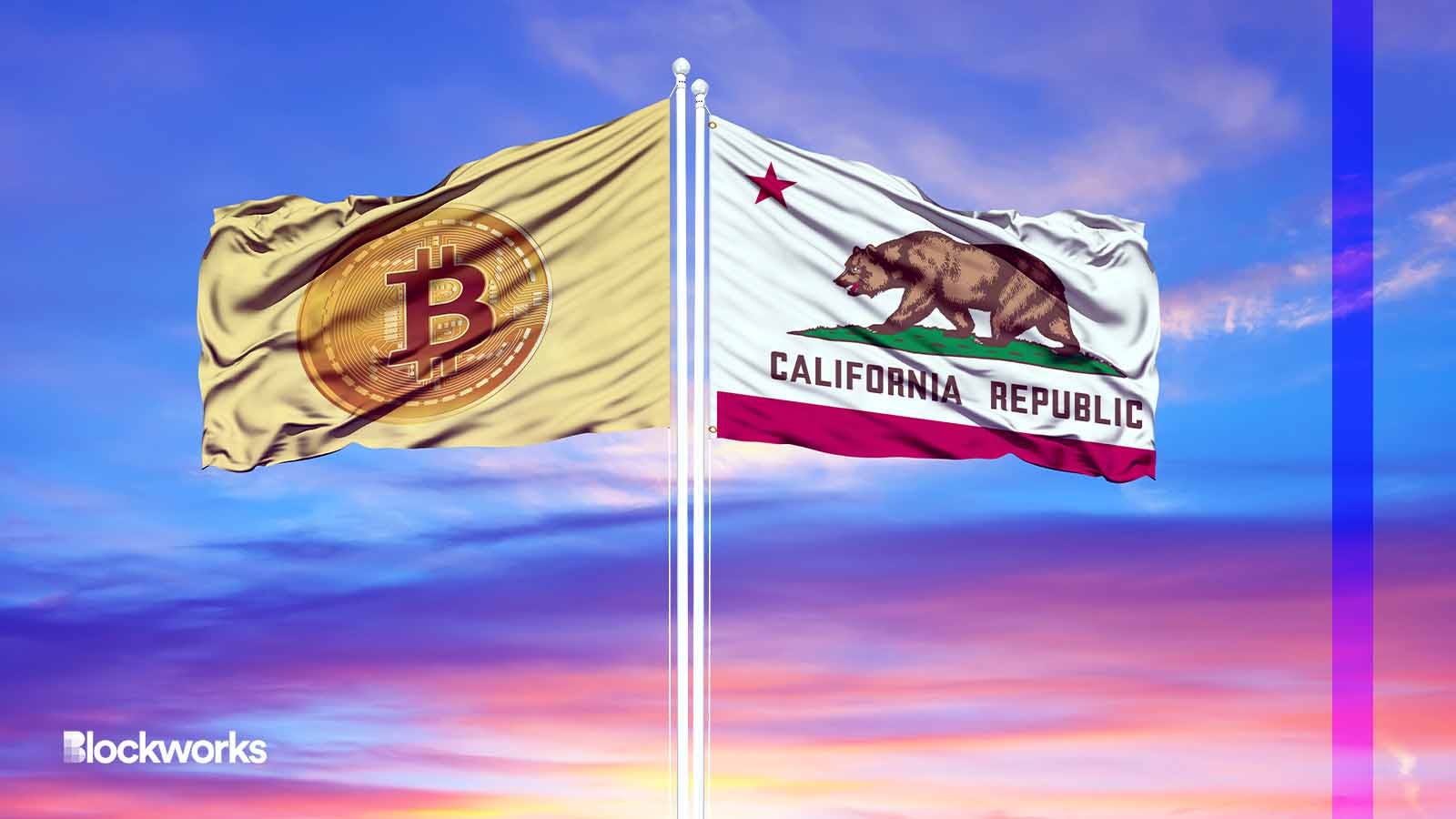California releases updated cryptocurrency campaign donation policies
Updated disclosure policies in California state that campaigns have to immediately convert cryptocurrency contributions into USD

Casablanca Stock/Shutterstock modified by Blockworks
The California Fair Political Practices Commission has revised its policies to provide details on the acceptance of cryptocurrency donations by campaigns.
The Commission’s updated disclosure manuals clarify that candidates and committees in California can only accept cryptocurrencies through US-based payments processors that follow know-your-customer (KYC) policies and regulations set by the Treasury and Financial Crimes Enforcement Network.
California’s policies state that all crypto contributions must be immediately converted into US dollars and that foreign entities, lobbyists and anonymous donors are not allowed to donate in cryptocurrencies.
Committees are required to accept cryptocurrencies solely through platforms that gather and report the name, address, employer and occupation of donors within 24 hours. Under the guidelines, California classifies crypto contributions as “non monetary” donations.
California first gave the greenlight for cryptocurrency campaign contributions in July 2022 after the state had elected to ban the practice in 2018. The Commission is scheduled to discuss the updated manual at its next meeting on Aug. 17, according to the public agenda.
The updated crypto contribution policies in California come shortly after the Minnesota Campaign Finance & Public Disclosure Board voted last month to officially allow candidates to accept cryptocurrency contributions. Under Minnesota’s policy, candidates and committees must convert the crypto into US dollars within five days.
States including Arizona, Colorado, Iowa, Ohio, Tennessee and Washington also have policies allowing for cryptocurrencies campaign donations. States that have explicitly banned the practice, generally over concerns that crypto enables campaigns to conceal funding, include North Carolina and Oregon.
On a national level, the Federal Election Committee allows committees and candidates to accept bitcoin contributions. Committees are allowed to hold the crypto in a wallet, but must return any contributions that come from a prohibited source, exceed the contribution limit or are otherwise illegal, the FEC said.
Get the news in your inbox. Explore Blockworks newsletters:
- The Breakdown: Decoding crypto and the markets. Daily.
- 0xResearch: Alpha in your inbox. Think like an analyst.






